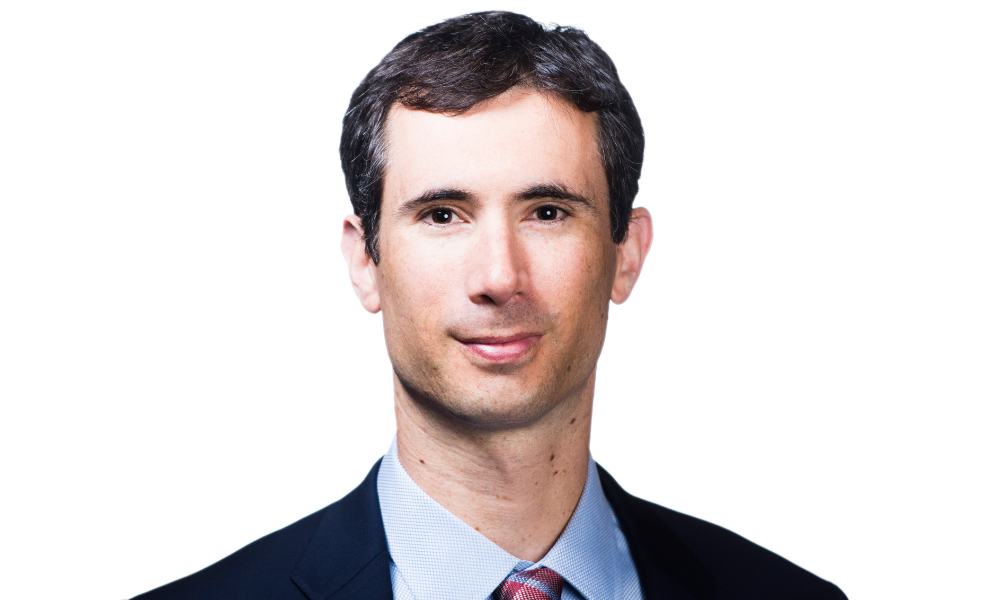
Ruling 'gives us goalpost and indication' of where similar cases might go, says Roper Greyell

This article was produced in partnership with Roper Greyell LLP.
A recent decision marks the first time the BC Supreme Court has directly weighed in on the validity of mandatory COVID-19 vaccination policies in non-unionized workplaces, and employers and employees – and their lawyers – involved in similar litigation view Parmar v. Tribe Management Inc. as “a real goalpost and an indication of where these cases might go,” says Danny Bernstein, partner at Roper Greyell LLP.
“Our firm has many of these cases in the court system at various stages and I personally have several files moving through the litigation process where it's this circumstance, these facts,” says Bernstein.
Over the course of the COVID-19 pandemic, Roper Greyell has advised clients on vaccination policies as they were developed and implemented. Most required employees to be fully vaccinated and while consequences for not complying ranged, in the majority of instances the employee was placed on some form of unpaid leave. Historically there would have been some risk to employers in placing an employee on unpaid leave, but in light of unprecedented health and safety risks the firm felt confident that would not be seen as a constructive dismissal.
With the court’s ruling in Parmar, that stance is no longer untested, and “we now know, thankfully for us and our clients, it is not constructive dismissal,” Bernstein notes.
According to the facts of the case, Deepk Parmar was an employee of Gateway Property Management which was acquired by Tribe Management in July 2021. In September, like many Canadian employers at the time, Tribe’s upper management considered whether to introduce a mandatory vaccination policy (MVP) in response to the COVID-19 pandemic. The company reviewed public health orders and the actions of the federal and provincial governments and took into consideration the fact that some of Tribe’s clients advised they would only allow vaccinated people on their properties.
In October, Tribe implemented its MVP requiring full vaccination with exemptions only on religious and medical grounds. Employees who failed to get vaccinated would be placed on an unpaid leave of absence but no further discipline would occur.
Parmar objected to vaccination based on her concerns regarding the safety of the vaccines. She proposed alternative arrangements such as working exclusively from home and regular testing, but Tribe refused to make an exception that wasn’t a human rights accommodation and Parmar was placed on an unpaid leave. In January 2022, Parmar emailed Tribe to advise she considered herself constructively dismissed from her employment and she commenced her civil claim the same day.
In deciding whether or not the unpaid leave of absence was reasonable and justified, the BC Supreme Court considered the workplace circumstances at the time, whether there was an intention to continue or terminate the employment relationship, and – importantly, Bernstein notes – what information was available to and reviewed by the employer when it decided to introduce the MVP, with later developments in the pandemic irrelevant.
Ultimately, the court concluded that Tribe’s MVP was carefully considered, reasonable, and a lawful response to the pandemic and that the MVP struck an appropriate balance between Tribe’s business interests, including its health and safety obligations, and the interests of Tribe’s clients and employees. For Bernstein, “it was interesting that the court commented specifically on the choice made by this employee, which we have focused on as well with our advice to our clients.”
“Individuals weren't being forced to be vaccinated, but they were choosing whether they were compliant or not with what is, we think, a reasonable and lawful policy, particularly given the health and safety consequences of the COVID pandemic and the need for all reasonable efforts to provide a safe workplace,” he says, adding that he appreciated the BC Supreme Court making that distinction, particularly noting that the vast majority of the plaintiff’s colleagues had chosen to become vaccinated in compliance with the MVP.
The court dismissed Parmar’s claim, and Bernstein believes it is the right conclusion considering the legal landscape as well as some arbitration decisions that have considered other, similar MVPs. The decision also illustrates the key considerations in assessing whether an employer’s MVP is reasonable and justified.
Although the decision is being appealed – and therefore practically speaking other similar cases in the system will likely remain on hold, barring substantially different facts, until the Court of Appeal’s decision – it reinforces the advice Roper Greyell has been giving so far: continue to review the latest medical evidence that's available, be aware of the most recent guidance from public health officers and government authorities, and stay current on how the legal landscape is shifting.
“Many employers still have these policies in place, and all of the companies we work with have maintained some form of safety protocol that wouldn't have necessarily been in place before the pandemic,” Bernstein says. “There’s definitely heightened awareness around communicable disease and the health and safety measures that you can use to prevent it. That hasn't changed, the pandemic hasn't ended – COVID is still in the population and there are still risks employers are mitigating.”